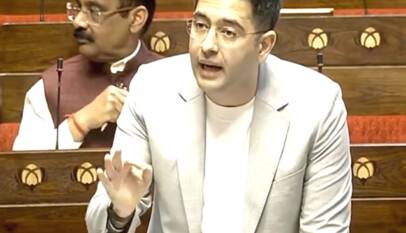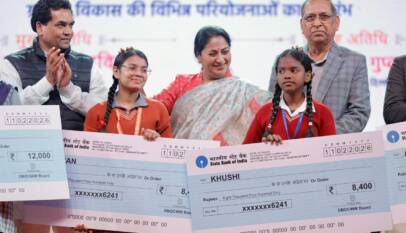Yogi Govt developing dedicated crop and fruit clusters in Uttar Pradesh
Recognizing the transformative potential of cluster farming, the Yogi government is upgrading existing agricultural clusters and creating new ones for a diverse range of fruits and crops in Uttar Pradesh. These specialized clusters are set to revolutionize the state’s agriculture sector.
It’s important to note that when any good is produced in large quantities, it inevitably draws the attention of buyers. The resulting competition among them ensures that the product commands a fair price reflective of its quality. This fundamental market principle applies equally to agriculture.
As these clusters become synonymous with the produce they specialize in, the market opportunities for the products from these clusters also strengthen.
This is a promising sign for the future of agriculture in Uttar Pradesh. Examples include Malihabadi Dussehri mangoes, Saharanpur’s Chaunsa mangoes, Varanasi’s Langra mangoes, Gorakhpur and Basti’s Gawarjeet, jaggery of Ayodhya, Gontha, and Saharanpur, Pratapgarh’s gooseberry (amla, Siddharthnagar’s Kala Namak rice, and Kushinagar’s bananas.
As part of this initiative, districts involved in One District One Product (ODOP) farming are being equipped with facilities for grading, packing, branding, and marketing through Common Facility Centres (CFCs).
According to T. Damodaran, Director of the Central Institute of Subtropical Horticulture, the institute, in collaboration with the government, has established clusters for Dussehri and Chaunsa mangoes in Lucknow and Western Uttar Pradesh, connecting around 4,000 orchardists.
These farmers receive guidance on orchard rejuvenation, flowering techniques, crop protection, and fruit quality enhancement, leading to tangible benefits. Notably, 5 tonnes of Dussehri mangoes were exported from Malihabad to the United States for the first time.
Clusters are also a vital feature of the UP AGREES initiative, a collaborative effort between the Yogi government and the World Bank. The Uttar Pradesh Agriculture Growth and Rural Enterprises Ecosystem Strengthening (UP AGREES) project, recently approved by the Yogi government and the World Bank, emphasizes the creation of agricultural clusters. A budget of Rs 4,000 crore will be allocated over six years for this comprehensive scheme.
The central government is also keen to maximize the potential of clusters to benefit farmers.
Recently, Union Minister for Agriculture Welfare and Rural Development, Shivraj Singh Chauhan, announced that the Central Government will establish 100 export-oriented horticulture clusters over the next five years, with an investment of Rs 1,800 crore. The government is also planning to develop clusters for vegetable production.
Given Uttar Pradesh’s nine distinct climate zones, fertile Indo-Gangetic plains, abundant water resources, and a strong labor force, the state is poised to benefit the most from these central schemes.
The Yogi government is actively working to ensure that farmers in Uttar Pradesh fully capitalize on these initiatives with support from the Centre. For instance, at reduced costs, agricultural goods have begun to be transported via the country’s only inland waterway from Prayagraj to Haldia.
The Yogi government plans to extend this waterway to Ayodhya, benefiting numerous farmers in the Awadh and Purvanchal regions. Additionally, the construction of Jewar Airport is expected to bring similar advantages to Central and Western Uttar Pradesh farmers.
Big Boost for Workers and Villages: Education Support for 15,000 Children, Development Projects Worth ₹134 Crore Launched
“Those who build Delhi deserve our respect,” says CM Rekha Gupta; ₹12.40 crore released Fo…


















